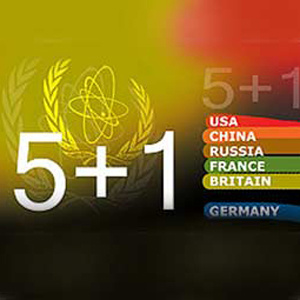|
After fifteen months, Iran and the 5+1 countries will meet again in Istanbul today to discuss the Iranian nuclear dossier in the hope that a solution acceptable to both sides is achieved. The stakes are high for all in this round of negotiations. On one side, the West has realized that, short of a full scale military confrontation, there will be no disruption in Iran's nuclear program and, even in that eventuality; the program will probably be delayed and not dismantled. On the other side, Iran has come to the conclusion that it should do more to address the concerns with regard to its nuclear activities in order to relieve itself from political and economic pressures imposed and promoted by the West, hence the hope that the Istanbul talks, unlike its predecessors, will bear fruit.
Before the start of the talks, Iran signaled that it would take this round of talks more seriously and was prepared to take extra steps to ensure its success. When in February last, Iran's chief nuclear negotiator informed the EU foreign policy chief that Iran was ready for the next round of talks, he said that talks for cooperation based on step-by-step principles and reciprocity on Iran’s nuclear issue could be commenced. A few days ago, he sounded very optimistic during a news conference in Tehran when he said, "Iran's representatives will bring innovative ideas to the negotiating table and we hope that the five plus one countries have a productive outlook as well." Moreover, last Monday, the head of Iran's Atomic Energy Organization raised the possibility that Iran was prepared to be flexible on the 20% enrichment if the needs of the country were met. In a rare development, yesterday Iran's Foreign Minister in an op-ed in the Washington Post expressed hope that "all sides will return to the negotiating table as equals with mutual respect; that all sides will be committed to comprehensive, long-term dialogue aimed at resolving all parties' outstanding concerns; and, most important, that all sides make genuine efforts to reestablish confidence and trust."
Western officials have privately expressed optimism for the success of this round of talks. However, the U.S. continues to send mixed signals. The White House Press Secretary said last Wednesday that "the international community is united, Iran is isolated, the way to change that dynamic is for Iran to live up to its international obligations and to forsake its nuclear weapons ambitions." Nevertheless, the U.S. Secretary of State suggested on Thursday that the United States was prepared to consider reciprocal steps.
There are certain realities that should be borne in mind:
- Iran has on many occasions strongly rejected weapons of mass destruction, the most important instance of which is the fatwa issued by the Supreme Leader Ayatollah Ali Khamenei.
- Despite the existence of different inclinations within Iran on many issues, the overwhelming majority of Iranians support current nuclear activities.
- Economic sanctions have not forced Iran to abandon its peaceful nuclear program.
- Military threats by Israel and neo-cons in America have not worked.
- The lack of trust among protagonists is so deep that one cannot expect to find a solution overnight.
- Concerns of all sides should be addressed in good faith through continued negotiations.
The participants in the Istanbul talks should bear in mind that what is most needed at this juncture is to build trust and confidence. After many years of distrust, all sides should show some patience in order to create an atmosphere conducive for compromise and progress. There is no other alternative.
|


